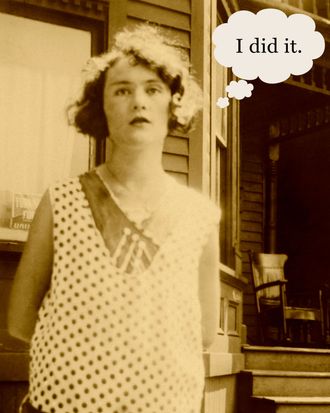
If you’ve ever worked hard to achieve something, only to feel disappointed and deflated when it didn’t really change you in the end, well, there are now multiple terms for that feeling: one is “arrival fallacy,” or the feeling of getting somewhere only to realize it’s the same place you’ve always been, as a recent New York Times story outlined. Another term is “success hangover,” or the feeling of post-achievement queasiness and emptiness. Success Hangover is also the name of a 2018 book on the topic. (“Once we achieve these milestones,” Kelsey Ramsden writes, “we’ll finally feel complete, accomplished and whole, right?”)
Okay. So is there any point to having goals? Yes, or at least we probably always will have them, regardless. But one way to circumvent or mitigate this “arrival fallacy” letdown is to have multiple goals going at once, in various life arenas, as the Times suggests: “lay out multiple concurrent goals, both in and out of your work life.” That way, when one goal lets you down, or wraps up, you can turn your focus to another without ever having to scrape the bottom or be fully empty-hearted. Easier said than done — it’s hard to manufacture investment in things — but useful to keep in mind. Put another way: Just distract yourself.
Another approach is to have no goals, or to hold them more loosely. I was moved by a recent story in the Buddhist magazine Tricycle about overcoming “the vortex of desire.” The authors’ core suggestion is to practice identifying a desire, observing it, ignoring it, and seeing what happens. “Every now and again, when you notice yourself wanting something,” the authors write, whether it’s a thing or a state of mind, “decide that you are not going to have it. Notice any emotions that come with thwarted desire, such as anger or fear, and any stories you tell yourself about why you should have what you want and should have it now! Conclude the practice by bringing a brief gesture of kindness to yourself by placing your hand on your heart or some other part of your body.” I like this in theory, but then what? Taken to its logical extreme, don’t we then stop working, stop dating, stop helping? I’m on the fence with this approach.
That said, in my own life, I think I’ve been happiest — well, or the least stressed out — when I had no goals, or when real goals seemed so far off they weren’t worth thinking about. That doesn’t seem like such an easy or desirable state to muscle myself back to, though. I coasted into a career in media, for instance, having only a vague idea in college that I wanted to be a “travel writer,” for which I moved to New York and then did whatever came along that seemed interesting. That turned into various fun internet jobs I couldn’t have anticipated. Similar with personal relationships. Not thinking about or wanting marriage or kids in my 20s made relationships feel kind of oddly effortless, or low stakes. Now, in my 30s, getting married and having a baby feel like important goals to achieve and ring the bell about.
Maybe it’s fine to submit to all these ultimately unfulfilling goals and laugh about our inevitable, constant disappointments. It seems that even knowing that certain “achievements” won’t meaningfully change our default inner states doesn’t really change our desire to achieve them. For instance, I’m dying to get engaged, although rationally I know it wouldn’t change much. Probably. In some ways it might even make things worse. But until I experience it for myself, I’m stuck in this phase of curiosity, maybe, more than desire: I want to know how it feels. If it’s disappointing, I want to become disappointed by it firsthand.




